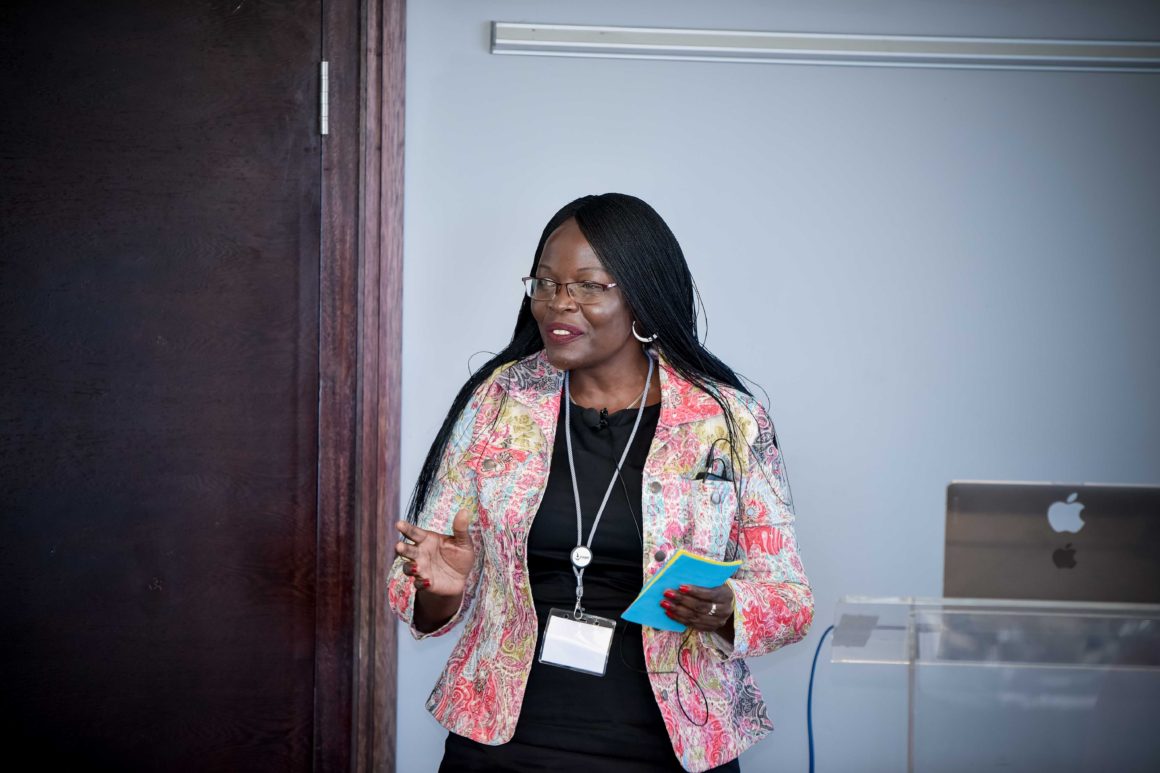I need to learn how, where, what, why, and who I can work with to implement some of these great ideas. Most importantly, I need to start where I am with what I have.
Alice Achieng Ojwang is a registered nutritionist and dietician, and a lecturer at the Technical University of Kenya. She recently completed her PhD in dietetics at the North-West University, South Africa. Alice has practised nutrition/ dietetics for the last 20 years. She mostly works in Patient education and worksite wellness — her areas of specialisation and interest are in obesity and metabolic syndrome, which she pursued both at the master and PhD level of education.
Alice has worked with persons with various conditions including: obesity, diabetics, hypertensive and dyslipidaemia. Her work also involves worksite wellness, to prevent these chronic conditions and also manage persons at work to improve productivity and reduce medical bills. In addition, she mentors young nutrition/dietetic professionals, takes them as interns, and prepares them for the job market. Alice achieves and stays up to date with her field through continuous nutrition education (CNEs) seminars and a very active dietetic practice.
What led you to pursue a career in health?
Growing up, I wanted to study medicine. My mother worked as an auxiliary staff in a medical hospital and that motivated me to pursue medicine. Also, most of the adults in my step dads family were either doctors, nurses, pharmacists or lab technicians. I think this was the motivation. However, I did not qualify for the entrance to study medicine in Kenya. I was advised by a kind person, that Nutrition was the best medicine. I, therefore, pursued it and I am very glad I did.
What are you most proud of?
I am proud of my achievements in Nutrition. But, it took a village.
While working in the first team (Roche Pharmaceuticals, Kenya Office) to create obesity awareness in Kenya, we, team Roche- Kenya, made history. We ran awareness campaigns in different cities, explaining the meaning of weight, body mass index, waist circumference, blood sugar and blood pressure, contributing to lifestyle change.
Additionally, I held the first continuous nutrition education (CNEs) seminar in Nairobi Kenya in November 2004. At that time, even lecturers from a major university in Kenya came for this session. This motivated me beyond what words can say. I will never forget that day.
What do you wish you had done differently?
As I said earlier, I started my career as a medical anthropologist doing research in rural areas on maternal mortality, malaria, and so on. My main challenge was to fit into a public health field where things were being controlled, seen, and analyzed mainly from a medical point of view. Having the right skills, self-confidence, and esteem has been essential to overcome obstacles and be listened to.
I am also proud of the role that I have played in the lives of every patient I have been able to assist during my clinical years. I have done it whole-heartedly and I still become happy when I give or assist strangers randomly, as it comes naturally to me.
What are some of the opportunities you see for women in health on the African continent?
At some point, I got tired of running the CNEs and decided to stop. There was a high demand for it. We had participants coming from as far as Uganda, Tanzania and even Rwanda. Postgraduate students from the universities benefited from these CNEs as well. I wish I could have been more patient and just looked for a partner who was willing to work with me on this project.
Many scientists in my region carry out/perform excellent research, but they all end up in the library shelf, used primarily as studies for post-graduate students. In 2004, I decided to register a journal, the Journal of Nutritional Sciences and Physical activity (JONSPA). Once again, I had no capacity to run this journal at all. But I let it rest, instead of putting a team together to run it.
I also wish that someone had forced me to do my PhD right after my masters, and before marriage, instead of registering for it 10 years later. I have had excellent ideas, but no capacity to implement them. However, I am happy that I pursued this dream later on. I will do what I can now, under the direction of a mentor and coach.
What are some of the biggest challenges you have faced? How did you overcome them? What are some of the lessons learnt?
Not being able to complete my PhD the first time I registered, 2009. I accepted the situation and the circumstances that led to that failure. I eventually registered for my PhD in 2015 and just completed this year, 2019. Lesson learnt: Persistence, and determination pays.
I had excellent ideas, and I talk about them freely. Because of this, people have stolen my business ideas and made them their own. I was jealous, because they made money, and did not acknowledge me. However, now I know better. I go to meetings with non-disclosure documents. Lesson learnt: I may have the ideas, but I need to work with someone out there to implement them. Make use of the Network platforms like Pan African Women in Health (PAWH). I need to learn how, where, what, why, and who I can work with to implement some of these great ideas. Most importantly, I need to start where I am with what I have.
What are some of the biggest challenges you have faced? How did you overcome them? What are some of the lessons learnt?
Mentorship is excellent and very important for professional and even personal growth. I only grew and reached the top of my career because of my mentors. I had mentors at different stages growing up. While in high school, university, early and mid-career. If it weren’t for them, I would not be here today. Many people played a role in my life. “It takes a village”.
Mentors lead you to the right directions, trying to get ideas from everywhere pulls you in different directions, making it difficult to grow and thrive.
In the second half of my life/career, I am taking on a mentor through PAWH. I am excited. Let’s see where this will take me — looking forward to reporting back in the next PAWH conference.
What are some of the opportunities you see for women in health on the African continent?
There are many opportunities, in nutrition alone, the most significant problems are food security and the growing trend of obesity and NCDs in the continent.
Governments need health and nutrition advisors. The ministers and political bosses are not even fit to lead – they need help. Corporate organisations need advisors to keep their staff healthy. Nutrition intervention programs for improved health and productivity at workplaces are hugely needed and on demand. These interventions can contribute to improved educational performance in schools and institutions of higher learning.
Public nutrition education; every person walking in the street should have a basic idea of a healthy, balanced meal. That’s the only way we will lower the life threatening malnutrition statistics. To achieve this, we need more dietetic practices around Africa, to help people manage chronic conditions, that require nutrition advise. Furthermore, Medical practitioners and dieticians/nutritionists need to connect and work as a team. There is much to be done.
What advice do you have for other women in health?
Women and girls should be unstoppable. Go for what you want. Ask for help from women and even men. Join a mentorship program. Join a motivating group of peers. Don’t give up. Work hard. There are many people there willing to help. Remember this; “there is no short cut to climbing a palm tree” Cameroonian proverb.


Leave a Reply